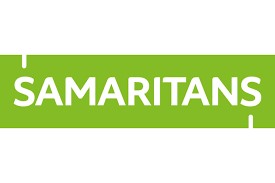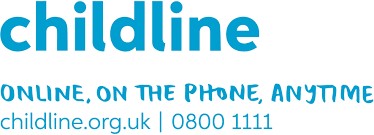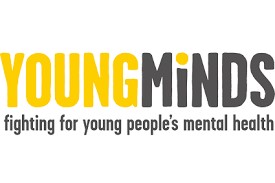School Counsellors
Aim of Counselling
The school counselling service supports students in becoming more self-aware, confident and resilient. Counselling is a safe space to talk to a neutral and non-judgmental adult, with the option of using creative materials for self expression.
The counselling service is suitable for students who are struggling with a whole range of concerns e.g. bereavement, bullying, anxiety, identity (sexuality, gender, race, SEND), discrimination, relationship difficulties, low confidence, low mood, family or community issues.
How to refer to the School Counselling Service
-
Students can self-refer using the online counselling referral form found on the Student Portal
-
Alternatively students can post a self-referral form into the counselling post box (located by the counselling rooms on the ground floor)
-
Parents/guardians can request counselling on their child's behalf by contacting their child’s form tutor
-
School staff can complete the online counselling referral form on behalf of students, with their permission.
Waiting List
The school counselling service has a waiting list. The wait time for accessing school counselling typically ranges from 1 to 6 weeks. School counsellors will aim to meet students for an initial assessment as soon as possible after a referral has been made to the service.
Details of Counselling Sessions
-
Six sessions are offered initially, with a review on the fourth session
-
Counselling sessions last 50 minutes
-
Sessions will take place weekly, during the school day, and will be held at the same time each week
-
In exceptional circumstances up to three online sessions will be offered to students.
-
If a student chooses to miss their session for two weeks in a row, their sessions will cease at that current time however they can always refer if they want to try engaging with the service again
-
A student can withdraw from the counselling service at any time.
For more information and guidance please see the organisations listed below:
Childline
|
Childline Whatever your worry, whenever you need help, we're here for you online, on the phone, anytime. Website: www.childline.org.uk |
Free Helpline: 0800 1111
kooth
|
|
Website: www.kooth.com
The Mix
 The Mix is the UK’s leading support service for young people. We are here to help you take on any challenge you’re facing - from mental health to money, from homelessness to finding a job, from break-ups to drugs. Talk to us via online, social or our free, confidential helpline.
The Mix is the UK’s leading support service for young people. We are here to help you take on any challenge you’re facing - from mental health to money, from homelessness to finding a job, from break-ups to drugs. Talk to us via online, social or our free, confidential helpline.
Website: www.themix.org.uk
Helpline: 0808 808 4994
Text: Free, 24/7 crisis support across the UK. If you’re aged 25 or under, and are experiencing any painful emotion or are in crisis, you can text THEMIX to 85258
Samaritans
 24 hour confidential listening and support for anyone who needs it. (Adults included.)
24 hour confidential listening and support for anyone who needs it. (Adults included.)
Website: www.samaritans.org
Helpline: 116 123 FREE
Email – jo@samaritans.org Response Time – 24 hours.
Young minds
|
Website: www.youngminds.org.uk
Text: If you need urgent help text YM to 85258. It is free and confidential to text our service from the following major networks: |
EE, O2, Three and Vodafone. These include - BT Mobile, Tesco Mobile, Virgin Mobile, iD Mobile, Sky, Telecom Plus, Lebara and GiffGaff. Some Android phones issue a warning that you will be charged for texting us, provided you are on one of these networks this warning is incorrect and you will not be charged. If you text us from a network that is not on this list there is a possibility that you may be charged for the messages and that they may appear on your bill, this is because some networks do not provide the capability to message short codes.
8 tips for Wellness
|
Wellbeing |
There are many way ways of looking after your wellbeing, such as writing down how you feel, drawing ,music and even poetry can be useful tools to empress your emotions. Positive thinking and Gratitude Journals are also beneficial ways of looking after our wellbeing. |
|
Exercise |
Physical activity plays a big part in looking after our mental health and wellbeing. As we are allowed to go out once a day , consider taking a short walk outside or 30 minutes to complete a workout from home. You can check out lots of ideas on keeping fit on the Sports England Website |
|
Limitations |
Be mindful of how often you are on your social media accounts and what news reports you are watching. Is the source genuine? Are the posts you are viewing unhelpful? Consider taking time out from using your mobile device. |
|
Leisure |
As much as it is important to keep up with school work and chores , having time for yourself is just as important. What activities do you enjoy? What helps you to relax and unwind? Is there particular games or activities you can do as a family? |
|
New skills |
Could this time at home be an opportunity to learn and develop new skills, such as learning to play an instrument, cooking & baking or even another language? |
|
Environment |
Is your room a safe space for you to relax? Is there a lot of clutter around? Having a tidy room can be soothing and help you to feel more organised which will result in reducing your stress and anxiety levels. |
|
Social Support |
During these challenging times, connecting with friends , family and even school staff can be helpful. Emails, video calling, messaging and phone calls will be valuable during this time. |
|
Self-help & services
|
There are numerous self-help guidance online how to look after your wellbeing as well as services such as Childline, Young Minds and The Mix which offer 24 hour support for young people. |


 is a Free, private and confidential service for anyone in the Uk under the age of 19 where you can talk about anything.
is a Free, private and confidential service for anyone in the Uk under the age of 19 where you can talk about anything. Kooth is a safe, confidential and anonymous mental health and emotional well-being platform for children and young people, accessible through any connected device
Kooth is a safe, confidential and anonymous mental health and emotional well-being platform for children and young people, accessible through any connected device Young minds is the UK’s leading charity fighting for children and young people's mental health.
Young minds is the UK’s leading charity fighting for children and young people's mental health.